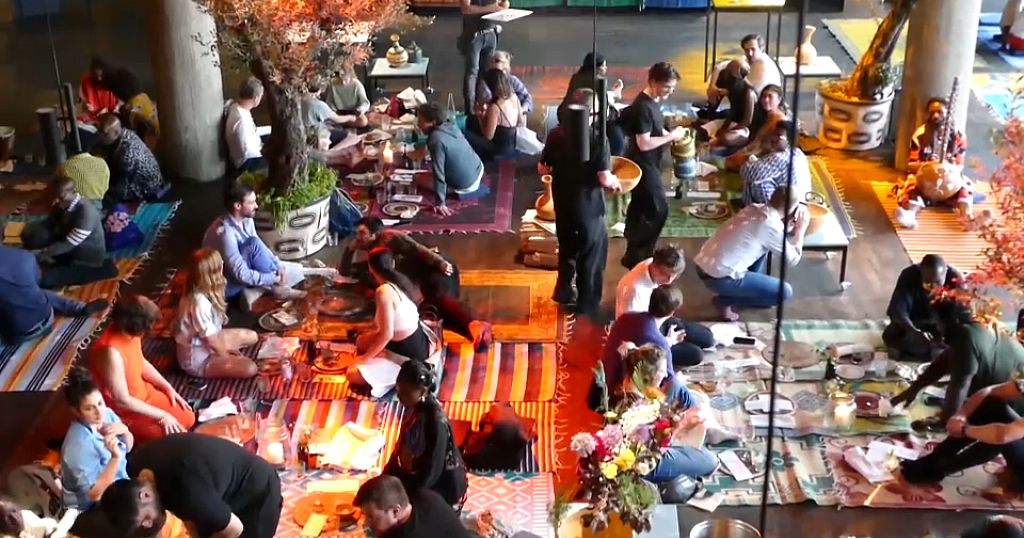The House of World Cultures in Berlin has recently reopened its doors with an exciting new focus on showcasing non-European cultures. As part of its program, the House featured a captivating Fulani dinner, offering visitors a glimpse into the traditions and flavors of this prominent nomadic group from West Africa. The Fulani people, estimated to number around 20 million, have a rich cultural heritage that has been passed down through generations for hundreds of years.
At the forefront of promoting Fulani cuisine and culture is Chef Fatmata Binta, a native of Sierra Leone who is currently based in Ghana. Chef Binta, known as the ambassador of the Fulani kitchen and culture, has been making significant strides in bringing Fulani cuisine closer to the rest of the world. Her nomadic restaurant, aptly named 'Dine on a Mat,' serves as a platform to showcase the unique flavors and culinary traditions of the Fulani people.
Chef Fatmata Binta is passionate about using gastronomy as a catalyst for change and empowerment within her community. "I want to use gastronomy as a tool to champion change, and I believe I am doing that already. Being a gastronomy chef helps tackle issues that I care about in my community," she expressed. Through her culinary expertise and dedication, Chef Binta aims to shed light on the cultural significance of Fulani cuisine and address pertinent social and environmental concerns.
Fulani culture is renowned for its sustainability, a value that has been ingrained in their way of life for centuries. "Fulani food is sustainable. Our lifestyle is even sustainable. We are people who don't overuse stuff. We don't carry much. Most of our ingredients are dried because we don't grow fresh food, and when we buy fresh food, we dry them because we think about migration. How can we preserve food when we are on the move? We don't consume a lot, and I think this is a lesson the world can learn from us," Chef Fatmata Binta explained.
In her efforts to promote West African ingredients, Chef Binta has been particularly focused on highlighting Fonio, a super delicacy indigenous to the region. Fonio is a versatile grain that is highly nutritious and environmentally friendly, making it a perfect embodiment of the Fulani culture's sustainability ethos. By introducing Fonio and other traditional ingredients to a global audience, Chef Binta hopes to raise awareness about the diverse culinary treasures of West Africa.
As a testament to the growing recognition of Fulani cuisine and culture, the next Dine on a Mat meal is already in the works and is set to take place in Rabat, Morocco. This continuation of the culinary journey signifies the increasing interest in exploring the flavours and customs of the Fulani people, as well as the wider appreciation for non-European cultures.
The House of World Cultures' reopening and its emphasis on non-European cultures, particularly through the Fulani dinner, have provided a valuable opportunity for individuals in Berlin and beyond to expand their cultural horizons. Through the tireless efforts of Chef Fatmata Binta, Fulani cuisine is gaining prominence as a symbol of sustainability, rich heritage, and culinary excellence. The world can indeed learn valuable lessons from the Fulani people's approach to food and lifestyle, ultimately fostering a more sustainable and inclusive future for all.

